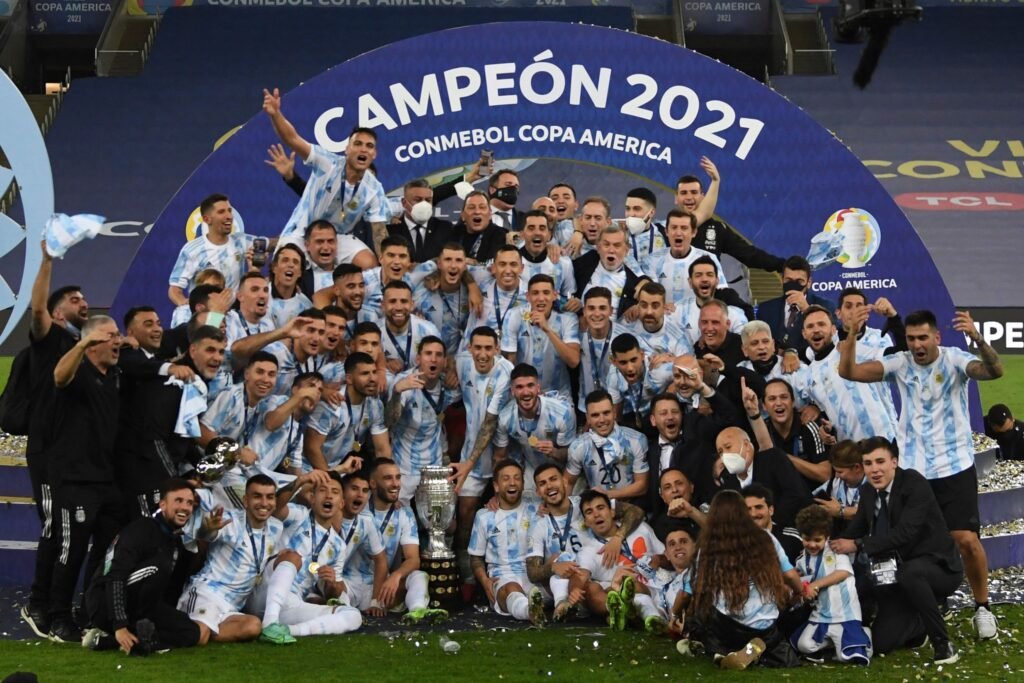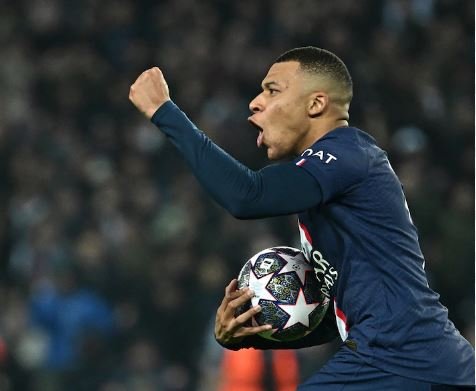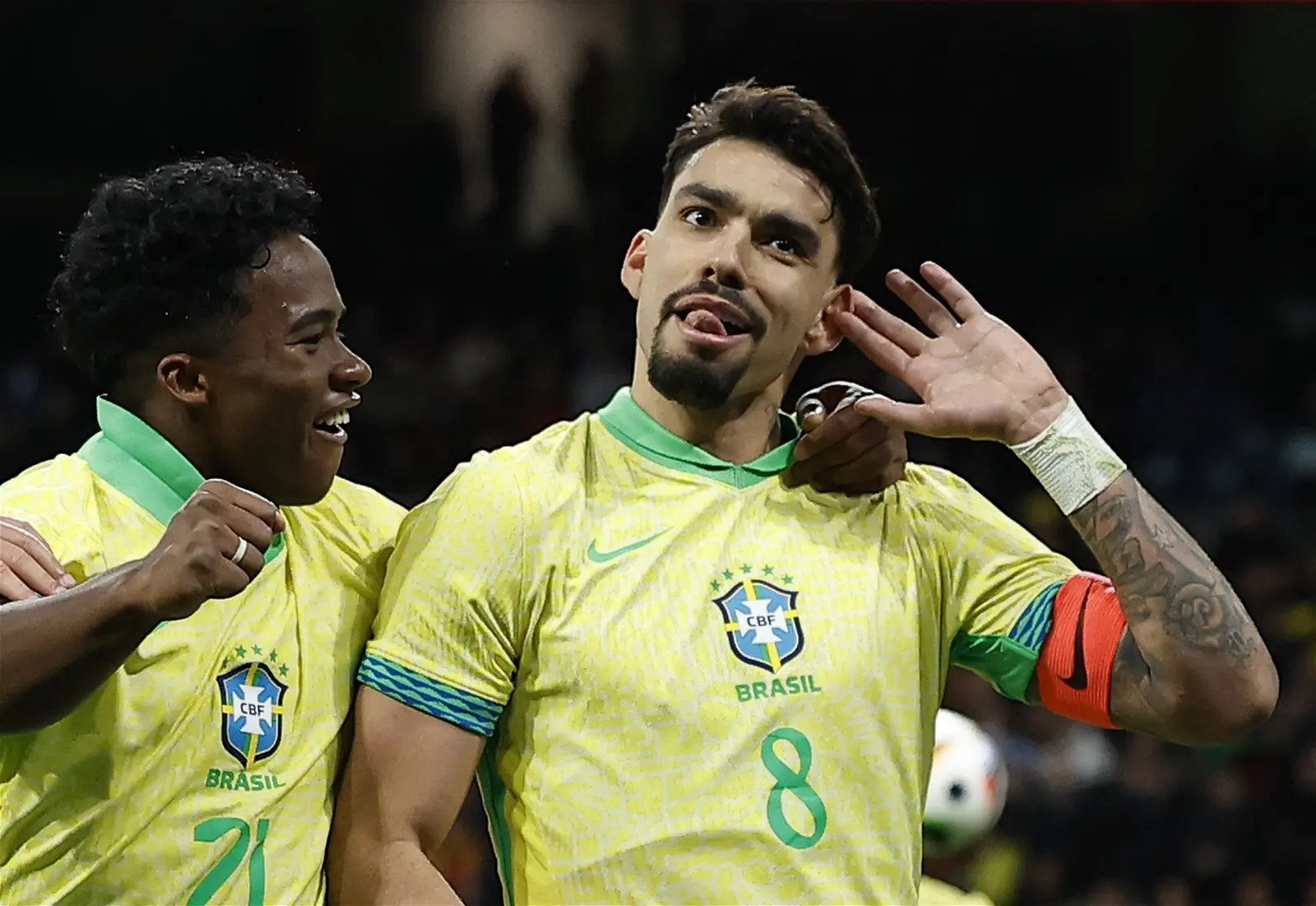Argentina claimed their first major title in 28 years, lead by Lionel Messi with a sensational 1-0 victory against Brazil in the Copa America final, clinching their record-equalling 15th crown.
This triumph was especially significant for Lionel Messi, who secured his maiden international title after years of success at the club level.

The decisive moment came when Angel Di Maria, starting for only the second time in the tournament, netted a superb goal midway through the first half. Despite Brazil’s relentless pressure in the second half, Argentina’s solid defense, led by Rodrigo De Paul, kept them at bay.
In a post-match interview, Di Maria expressed his emotions, saying, “We dreamed of this victory, and despite the critics, we fought hard to achieve it.” The match, although intense, was marred by numerous fouls, with Brazil acknowledging Argentina’s dominance in the first half.
Goalkeeper Emiliano Martinez labeled the win as a “Maracanazo,” referring to the famous Maracana Stadium and highlighting the fulfillment of Messi’s dream. Messi, the joint top scorer of the tournament with four goals, shared the honor of being the best player with Neymar, although he missed a crucial chance towards the end of the final.
The victory not only marked Argentina’s 15th Copa America title, drawing them level with Uruguay as the most successful teams in the competition’s history, but also extended their unbeaten streak under coach Lionel Scaloni to 20 matches. This defeat also ended Brazil’s unbeaten run in competitive matches since the 2018 World Cup.
Also Read: FIFA World Cup 2022 Final Argentina vs France: Messi Grabs the World Cup and Completed Football
Match Analysis
After a moment of mourning in honor of the COVID-19 victims, the game got underway, with Argentina having the advantage in possession and early scoring opportunities. In the third minute, a challenge on Gonzalo Montiel by Brazilian midfielder Fred resulted in a yellow card, starting a sequence of fouls by players on both sides. In the 22nd minute, Angel Di Maria gave Argentina the lead when he beat defender Renan Lodi to loft the ball over goalie Ederson in the distance after collecting a long pass from Rodrigo De Paul.
After the half-hour, Argentina launched a counterattack that resulted in a Lionel Messi miss. Brazil counterattacked with many shots, one of which prompted Emiliano Martinez to save. Argentina was ahead 1-0 at the end of the first half.
To try to equalize, Brazil manager Tite started Roberto Firmino in place of Fred in the offensive midfield position at the start of the second half. In the 50th minute, Di Maria tried to increase Argentina’s lead, but his attempt was stopped. This prompted a counterattack by Neymar for Brazil, but Giovani Lo Celso’s foul—which resulted in a yellow card—stopped it.
In the 52nd minute, Richarlison seemed to have tied the score for Brazil with a shot inside the penalty area that was flagged offside. A minute later, he attempted another shot, but Martinez stopped it.
Following Nicolas Otamendi’s foul on Neymar in the 81st minute, there were shouting and shoving between the two players. Otamendi was given a yellow card. Argentina launched a counterattack in the 88th minute after Martinez turned away two opportunities for Brazil, which resulted in Messi tripping while attempting to dribble around Ederson. Argentina won the game 1-0 and claimed their first Copa America championship since 1993.

History of Copa America
The premier men’s football competition amongst South American national teams is called CONMEBOL Copa America. It is the third most watched football competition in the world and the oldest continental football competition currently in existence.
The South American champions are decided by the competition. Teams from Asia and North America have also been invited to compete since the 1990s.
Twelve teams have typically competed in the event since 1993: two additional teams from other confederations and all ten CONMEBOL teams. With the exception of 1999, when AFC team Japan completed the 12-team field, and 2019, which included Japan and Qatar, Mexico competed in every tournament held between 1993 and 2016.
Copa America Centenario, the 2016 edition of the competition, included 16 teams total—10 from CONMEBOL and 6 from CONCACAF. Mexico has finished as the runner-up thrice, more than any other non-CONMEBOL team.
Since the competition’s inception in 1916, eight of the ten CONMEBOL national teams have emerged victorious from its 47 iterations, with Ecuador and Venezuela being the only teams yet to accomplish so. Venezuela and Ecuador are the only remaining teams without a victory. With 15 cups apiece, Argentina and Uruguay have won the most titles in the history of the competition. Argentina is the nation that has hosted the competition the most (nine times total), including the 1916 original edition.
The only non-CONMEBOL nation to have hosted the event is the United States, which will do so once more in 2024 in addition to in 2016. Three times (in 1975, 1979, and 1983), different South American nations hosted the competition.





